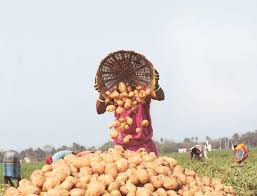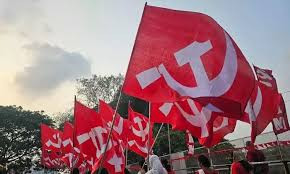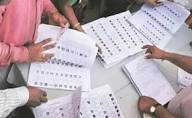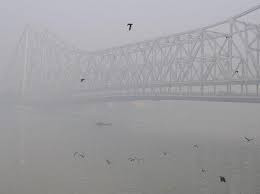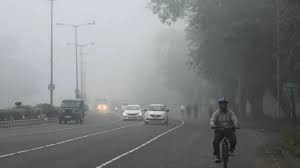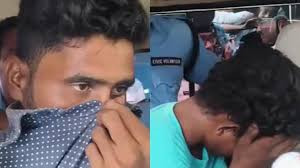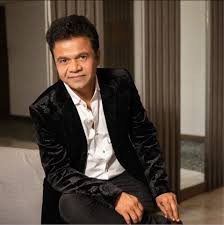Mamata Banerjee Accuses BJP of Orchestrating Murshidabad-Malda Unrest, Claims Evidence Against Modi Government
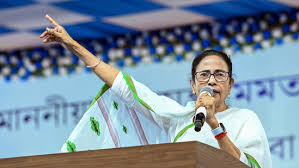
IIE DIGITAL DESK : West Bengal Chief Minister Mamata Banerjee has launched a fierce attack on the Bharatiya Janata Party (BJP) and Prime Minister Narendra Modi, accusing them of being behind the recent communal unrest in Murshidabad and Malda districts. Speaking at a press conference, Banerjee asserted that there is concrete evidence linking the BJP to the violence and alleged that the Modi-led central government deliberately instigated the turmoil to destabilize West Bengal ahead of the upcoming elections.
The unrest in Murshidabad and Malda erupted following protests against the controversial Waqf (Amendment) Act, 2025, which many Muslim groups opposed, claiming it infringed upon their religious rights. What began as peaceful demonstrations quickly turned violent, resulting in casualties, injuries, and widespread damage to property. Several vehicles, including police jeeps, were set ablaze during the clashes, and the situation escalated to a point that necessitated deployment of central forces.
Mamata Banerjee condemned the BJP for allegedly engineering the violence with the aim of polarizing communities and disrupting the social fabric of West Bengal. She accused the BJP of recruiting and mobilizing disruptive elements, including youths allegedly incentivized by the Border Security Force (BSF), to provoke and sustain the unrest. Banerjee also claimed that the BSF had resorted to firing on protesters, exacerbating the situation and causing unnecessary loss of life.
"There is evidence showing BJP’s direct involvement in the Murshidabad-Malda violence," said Banerjee. "The Modi government is playing a dangerous game by using security forces to inflame communal tensions for political gain. They want to spread fear and division in Bengal to undermine the democratic process here."
The Chief Minister further criticized the central government’s handling of the crisis, stating that rather than helping restore peace, the Modi administration’s actions have worsened the situation. She vowed that her government will not implement the Waqf (Amendment) Act in West Bengal and pledged continued support to the affected communities.
The BJP, however, has strongly denied all allegations. Party leaders accused Mamata Banerjee of deflecting responsibility for the violence and politicizing a sensitive issue for electoral advantage. The BJP demanded an impartial investigation and called for accountability from the state government, accusing it of failing to maintain law and order during the unrest.
The communal violence displaced hundreds of families, who fled their homes seeking safety in nearby towns and districts. The West Bengal government has since set up relief camps and is providing essential aid to those affected by the turmoil. Law enforcement agencies continue to maintain a heightened presence in Murshidabad and Malda to prevent any resurgence of violence.
The Calcutta High Court has intervened by ordering the deployment of central paramilitary forces to assist the state police in restoring order and ensuring the safety of citizens. Investigations into the violence are ongoing, with multiple arrests reported, though the full scale of involvement remains under scrutiny.
Political analysts believe the Murshidabad-Malda unrest has added fuel to an already charged pre-election atmosphere in West Bengal, with both the TMC and BJP intensifying their rhetoric and campaigning. The accusations and counter-accusations between the two parties highlight the deepening polarization in the state’s politics.
Observers note that the communal clashes underscore the fragile balance of communal harmony in certain regions and the challenges faced by governments in managing such sensitive issues amid political rivalries. The situation has drawn national attention, reflecting broader concerns about the interplay between politics and communal violence in India.
As the inquiry proceeds, the coming weeks will be crucial in determining how the incidents in Murshidabad and Malda impact the political landscape. The Chief Minister’s allegations against the BJP and the central government are likely to dominate political discourse and election campaigns in West Bengal.
Mamata Banerjee’s direct confrontation with Prime Minister Narendra Modi and the BJP marks a significant escalation in the ongoing political battle in the state, setting the stage for a tense and hard-fought election season. The Murshidabad-Malda violence remains a potent reminder of the volatile mix of politics, religion, and governance in contemporary India.
You might also like!


